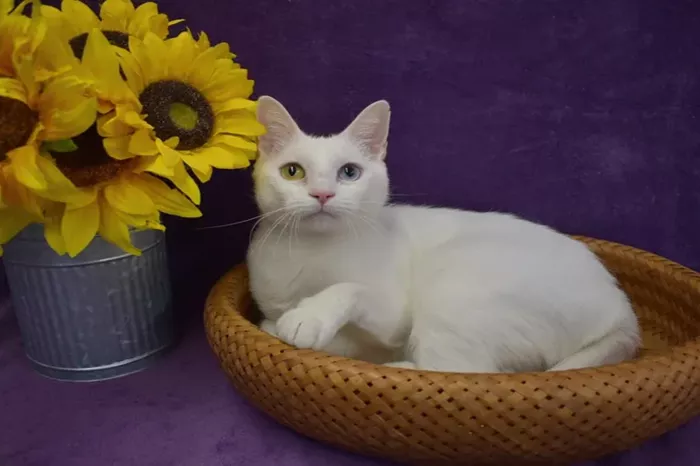Flowers can be a charming and elegant way to show your affection. With so many varieties available, you can easily tailor a bouquet to suit anyone’s preferences. However, when choosing flowers, it’s important to consider the health of your pets, particularly cats.
Many flowers that are safe for humans can be harmful to cats, according to the American Society for the Prevention of Cruelty to Animals (ASPCA). To help keep your furry friends safe, here’s a guide to some cat-friendly flowers.
Cat-Safe Flowers
PetMD highlights several flowers that are generally safe for cats, including:
- Alstroemeria
- Asters
- Freesia
- Gerbera Daisies
- Lisianthus
- Orchids
- Roses
- Snapdragon
- Statice
- Sunflowers
- Wax Flower
Among these, sunflowers are a non-toxic option for cats.
Are Roses Toxic to Cats?
Roses are not classified as highly toxic to cats by the ASPCA. While ingesting a rose could cause mild stomach upset, the primary concern with roses is their thorns. Cats chewing on a rose stem could suffer mouth or paw injuries. Additionally, floral stems might cause gastrointestinal blockages if swallowed.
What Flowers Are Poisonous to Cats?
Just like humans, cats can have allergic reactions to certain plants. These reactions may cause skin irritation, mouth sores, or stomach issues. In severe cases, exposure to toxic plants can lead to kidney or heart damage.
Many common flowers are poisonous to cats. To keep your pet safe, consult the ASPCA’s list of toxic and non-toxic plants. Some flowers to avoid include:
- Amaryllis
- Daffodils
- Oleander
- Lilies
- Peace Lilies
- Tulips
- Chrysanthemums
- Cyclamen
- Azaleas
- Rhododendrons
The toxicity level can vary based on the type and part of the flower. Any plant labeled as “toxic” should be avoided.
What to Do If Your Cat Eats a Toxic Plant
If your cat shows signs of irritation, such as eye swelling or skin redness, or if it has ingested a toxic plant, it could experience more serious symptoms like vomiting or diarrhea.
Seek immediate veterinary care if your cat exhibits any of the following:
- Difficulty breathing
- Excessive drooling
- Trouble swallowing
- Vomiting
- Diarrhea
- Increased thirst
- Frequent urination
- Irregular heartbeat
Keeping these precautions in mind will help ensure that your floral gifts are safe for your beloved pets.


